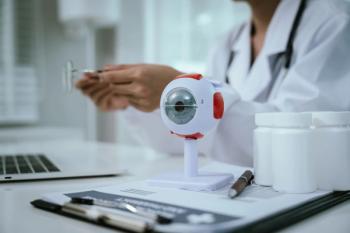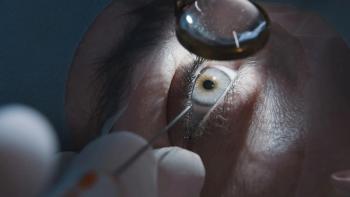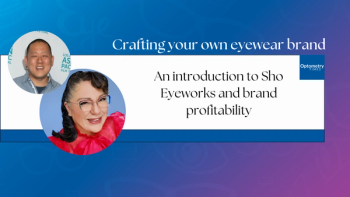
Letters to the editor: UPP, dry eye, and more
Optometrists are getting just too greedy in this replacement contact lens area. Replacement contact lenses are like toothpaste from the dentist.
Like something we published? Hate something we published? Have a suggestion? We want to hear from you! Send your comments to gbailey@advanstar.com. Letters may be edited for length or clarity.
Soap makes all the difference
While wholeheartedly agreeing with
Single-use lenses are not a problem. Two-week interval lenses are not as big a problem, but even these patients should be monitored for GPC and other lens-related concerns. One-month interval lenses definitely become a comfort problem starting at about two to three weeks into a fresh pair. Then, if you factor in non-compliance, practitioners really start to see more GPC and will hear more comfort complaints. Except for non-compliant patients, all patients will notice an increase in wearability and comfort when using a basic glycerin soap prior to handling their lenses. It has worked in my practice for 35 years!
Richard K. Ditto, OD
Fort Worth, TX
Related:
Jumping into multifocal contact lens fitting
Here's a big Amen after reading
Traditionally, patients who are emmetropic or minimally hyperopic at distance were ones who I would very reluctantly discuss contact lenses with and then mostly to consider a monovision fit. Those patients typically use only over-the-counter reading glasses and often resist any kind of distance correction. With the multifocal technology available today, I have successfully fit this niche of patients with contact lenses.
Of course, setting appropriate expectations is vital to achieving a successful fit. I discuss the quality of vision the patient can expect with multifocal contact lenses as compared to spectacles. I take into consideration occupation and hobbies and the patient’s goals for his vision with contact lenses. Patients who are highly motivated to wear contact lenses because they tire of keeping up with their reading glasses can successfully be fit into a multifocal.
I recently went out on a limb and fit two patients with very low hyperopia (less than +1.00 D at distance). I was very doubtful that I would succeed. The initial lens selection yielded good distance vision but unsatisfactory near vision. An over-refraction of just +0.25 D OU yielded dramatically better near vision without compromising distance. Both patients are now happy contact lens wearers.
By considering this subset of patients for multifocal fits, not only are you making patients happy and giving them comfortable vision, but this opens another revenue stream for your practice. Instead of those patients walking out your door and buying readers at the drugstore, they are now purchasing contact lenses. Is a multifocal contact the answer for every presbyopic patient? Certainly not. Some patients are perfectly happy with their readers, but a multifocal contact lens is an appropriate answer in more cases now than in times past.
Don't be afraid to try something new now and then. Unexpected success is still success.
Neal Lovett, OD
Baxley, GA
Related:
Boiling down dry eye info
I wanted to let you know how much I liked
Dena Mintz
Corona, CA
Related:
Move on from replacement contact lenses
I disagree with Dr. Bowling’s stand on
Optometrists are getting just too greedy in this replacement contact lens area. Replacement contact lenses are like toothpaste from the dentist. As a profession, optometrists have worked hard to get medical privileges to further the profession and our image. This kind of groveling over few dollars on replacement contact lenses goes against that professional image. There's no difference in getting replacement contacts from your OD or online even if you like to stand behind that “illusion” because of money greed.
Give it up!!
Replacement contact lenses belong in CVS or Walgreens or online. It’s done. Move on to better areas to advance and protect the professional image optometry has worked so hard to get.
Larry Harrison, OD
San Anselmo, CA
Related:
Feedback on UPP commentary
I must confess I really enjoy Dr. Bowling’s editorials. I just read “UPP: A good decision for patients,” (May 2015) and after considerable contemplation, I think the online contact lens distributors were just trying to tell the CL manufacturers, “UPP yours.”
Bill Townsend, OD, FAAO
Canyon, TX
Newsletter
Want more insights like this? Subscribe to Optometry Times and get clinical pearls and practice tips delivered straight to your inbox.













































